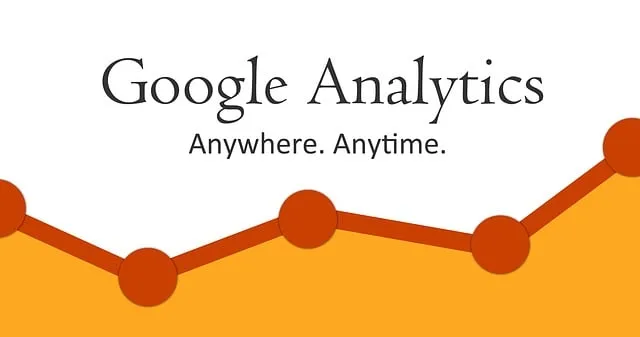Internal linking, a vital SEO strategy, can be significantly enhanced with AI SEO linking tool plugins. These tools automate the process of creating relevant links between pages, improving user experience and website visibility. By leveraging algorithms, they suggest optimal anchor text and distribute link equity evenly, outperforming manual methods. Marketers can save time and effort while boosting search rankings through strategic on-page optimization. The right AI plugin, considering content analysis, linking opportunities, and customization, ensures a tailored strategy for improved user navigation and increased online presence. Businesses across sectors have seen success, from e-commerce to content-rich sites, using these tools to achieve better rankings and drive organic traffic.
In the competitive world of search engine optimization (SEO), efficient internal linking is key to enhancing website visibility and user experience. However, manually linking relevant pages can be laborious and time-consuming. This is where an AI SEO linking tool plugin steps in as a strategic solution. By automating the process, these tools help optimize site structure, improve crawlability, and boost keyword rankings. This article explores the benefits, key features, and selection criteria for such plugins, drawing from real-world success stories to illustrate their impact on SEO strategies.
- Understanding Internal Linking and Its SEO Impact
- Challenges in Manual Internal Linking Process
- Introduction to AI-Powered SEO Linking Tools
- Key Features and Benefits of an AI SEO Linking Tool Plugin
- How to Choose the Right AI Linking Tool for Your Website
- Real-World Success Stories: AI SEO Linking in Action
Understanding Internal Linking and Its SEO Impact

Internal linking is a fundamental aspect of website architecture that often goes unnoticed by users but significantly influences search engine optimization (SEO). It refers to the process of creating hyperlinks between relevant pages on your site, guiding users and search engines alike through a logical navigation system. When implemented effectively, internal links can enhance user experience, improve page load times, and most crucially, boost SEO performance.
Search engines like Google use these links as signals to understand the relevance and hierarchy of web pages. An AI SEO linking tool plugin, for instance, can automate this process, ensuring that anchor texts are contextually relevant, and links are distributed evenly across a website. By optimizing internal linking structures using AI SEO linking tool tips, such as identifying related content, interlinking long-form content with shorter articles, and creating a hierarchical flow of information, websites can significantly improve their search rankings.
Challenges in Manual Internal Linking Process

The manual internal linking process can be both time-consuming and laborious, especially for larger websites with extensive content libraries. SEO professionals often find themselves in a tedious cycle of manually scrutinizing pages, identifying relevant anchor texts, and crafting precise links—a task that demands meticulous attention to detail and consistent effort. This is where an AI SEO linking tool plugin steps in as a valuable asset.
By employing advanced algorithms, these AI tools streamline the process, suggesting optimal internal links based on content relevance and user behavior data. Unlike manual methods, which might overlook strategic linking opportunities or lead to inconsistencies, AI SEO linking tool strategy offers a more systematic approach. Tips and tutorials available within these plugins empower users to make informed decisions, ensuring that each link contributes effectively to search engine optimization efforts.
Introduction to AI-Powered SEO Linking Tools

The rise of Artificial Intelligence (AI) has transformed various industries, and search engine optimization (SEO) is no exception. One of the most significant advancements in this field is the emergence of AI-powered SEO linking tools, which are revolutionizing content strategy. These cutting-edge plugins offer an efficient way to enhance website visibility and user experience by automatically generating internal links, a crucial aspect of modern SEO strategies.
With an AI SEO linking tool plugin, marketers and content creators can optimize their websites with minimal effort. The tool analyzes existing content, identifies relevant pages, and suggests strategic internal links, ensuring a seamless user journey across the site. This optimization process is particularly beneficial for large-scale websites with extensive content libraries. By implementing an AI SEO linking tool strategy, businesses can save time, improve content discoverability, and potentially boost their search engine rankings through effective on-page optimization.
Key Features and Benefits of an AI SEO Linking Tool Plugin

An AI SEO linking tool plugin offers a myriad of key features designed to streamline and optimize internal linking processes for enhanced search engine visibility. These tools leverage advanced algorithms to automatically identify relevant content within a website, suggest strategic link placements, and re-contextualize anchor text, all in adherence to best practices in SEO. By automating these tasks, the AI plugin saves significant time and effort for content creators and marketing teams.
The benefits of employing such an AI SEO linking tool strategy are multifaceted. It improves page authority by distributing link equity evenly across a site, thereby boosting overall SEO performance. Additionally, it enhances user experience through intuitive navigation and well-placed internal links, encouraging longer browsing sessions and lower bounce rates. Moreover, these tools enable continuous optimization by regularly re-evaluating content and suggesting updates to keep the website’s linking structure fresh and relevant in the ever-evolving digital landscape.
How to Choose the Right AI Linking Tool for Your Website

When selecting an AI SEO linking tool plugin for your website, it’s essential to consider several factors that ensure optimal performance and alignment with your SEO strategy. Firstly, evaluate the tool’s ability to analyze your existing content and identify relevant internal links. An effective AI linking tool should be able to understand your content’s context and suggest strategic linking opportunities within your site’s architecture. This ensures a natural flow of link juice, enhancing both user experience and search engine visibility.
Additionally, look for tools that offer customization options and allow you to implement specific linking strategies tailored to your website’s needs. AI SEO linking tool tips include optimizing anchor text diversity, ensuring a balanced internal linking profile, and avoiding excessive linking that might negatively impact user experience. By carefully choosing an AI SEO linking tool strategy, you can significantly improve your site’s search engine rankings through efficient and effective internal linking optimization.
Real-World Success Stories: AI SEO Linking in Action

In the real-world application of AI SEO linking tools, numerous businesses have witnessed significant improvements in their search engine rankings and overall online visibility. These innovative plugins are transforming the way content is structured and interconnected within websites, paving the way for a more efficient and effective SEO strategy. For instance, a leading e-commerce brand utilized an AI SEO linking tool plugin to analyze its vast product catalog and automatically generate internal links. This strategic move not only improved the user experience by providing seamless navigation but also empowered their SEO efforts, resulting in higher rankings on competitive keywords.
The success story doesn’t end there. Many content-rich websites have embraced AI SEO linking tools to optimize their extensive article databases. By implementing a smart linking strategy, these platforms ensure that each piece of content is thoughtfully connected to relevant articles, enhancing the overall authority and coherence of the website’s content. This optimization has led to increased organic traffic and improved user engagement metrics, solidifying the websites’ positions as thought leaders in their respective industries.
